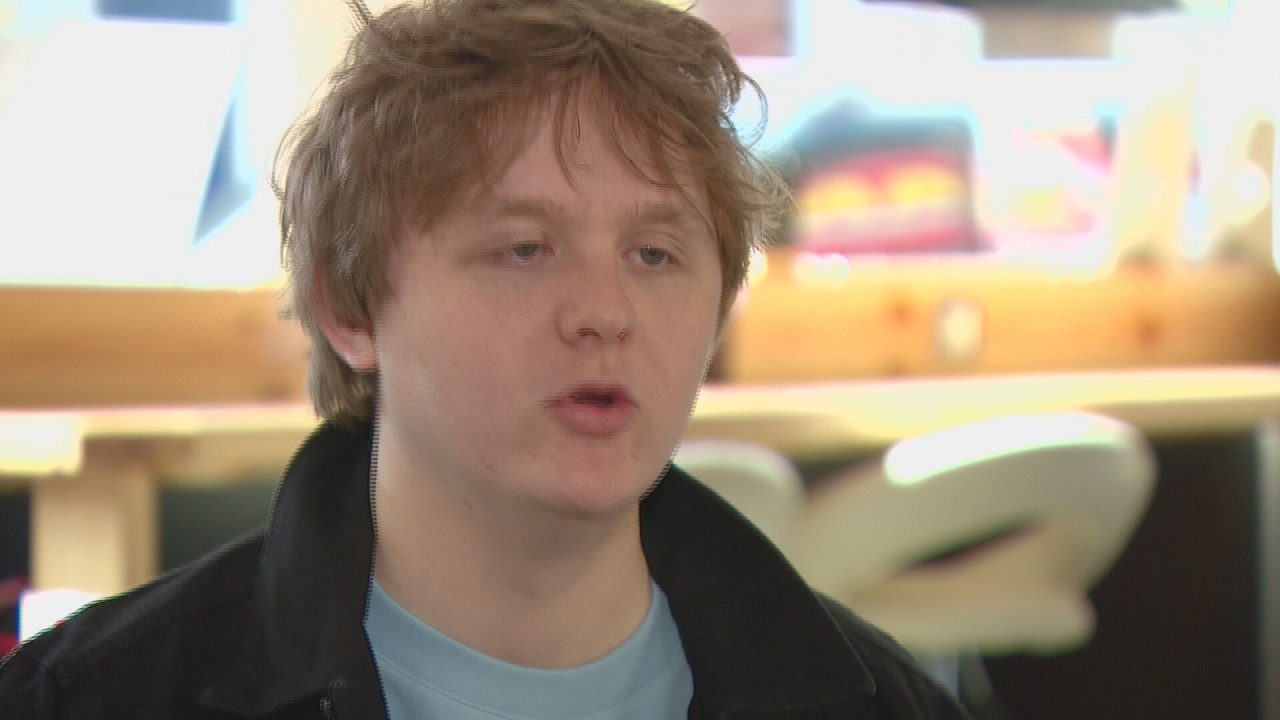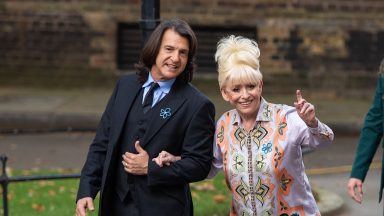Scots music superstar Lewis Capaldi has been diagnosed with Tourette’s syndrome.
He went public because he didn’t want fans thinking he was “taking cocaine or something”.
“My shoulder twitches when I am excited, happy, nervous, or stressed,” the 25-year-old told the Scottish Sun newspaper.
“I got Botox in my shoulder to stop it moving, but I’m learning new ways to cope all the time.”
What is Tourette’s?
The NHS describes Tourette’s as “a condition that causes a person to make involuntary sounds and movements called tics“.
It was named by French neurologist Jean-Martin Charcot after his intern Georges Gilles de la Tourette reported the cases of nine patients with “convulsive tic disorder” in 1885.
Symptoms can also include shouting out random words and swearing – although that is rare – as well as grimacing, eye rolling and jumping.
Usually beginning during childhood, symptoms usually improve after several years and sometimes go away completely.
Boys are more likely to be diagnosed as girls – but it’s not known why.
Is there a cure?
No, but treatment can help to manage the symptoms.
People with Tourette’s may also be treated for obsessive compulsive disorder (OCD), attention deficit hyperactivity disorder (ADHD) or learning difficulties.
Can it harm overall health?
The NHS says tics will not usually harm someone’s overall health, but that movements such as a jerking of the head can be painful.
Tics can be worse during periods of:
- Stress
- Anxiety
- Tiredness
What happens before a tic?
Most people with Tourette’s syndrome experience a strong urge before a tic, which has been compared to the feeling you get before needing to itch or sneeze.
These feelings are known as premonitory sensations, which are only relieved after the tic has been carried out.
Examples of premonitory sensations include:
- A burning feeling in the eyes before blinking
- A dry or sore throat before grunting
- An itchy joint or muscle before jerking
Can tics be controlled?
The NHS says some people can control their tics for a while in certain social situations, but it requires practice and concentration.
Controlling tics can be tiring and a person made have a sudden release after a long spell of trying to control them.
How is it diagnosed?
No single test exists for Tourette’s, but tests and scans may be used to rule out other conditions.
People may be diagnosed if they’ve had several tics for at least a year.
A doctor may then refer the patient to specialists such as a neurologist, behaviourists or nervous system expert.
What other help is available?
For more information about treatment and support, the NHS recommends contacting the charity Tourettes Action.
Follow STV News on WhatsApp
Scan the QR code on your mobile device for all the latest news from around the country


 STV News
STV News


























